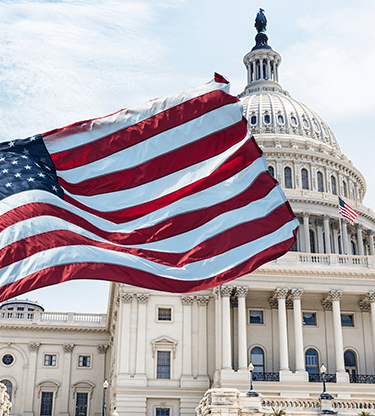Daily Brief

Better numbers from the States
4 minute readA lucky escape
Inspiration was sadly lacking at the end of last week. Many of the global economic statistics were disappointing, as was much of the Covid news about divergent strains and vaccine supply. With few exceptions, share prices moved lower. Other than the Norwegian krone, which lost an average of 0.5%, exchange rates moved by no more than plus or minus 0.2%.
Sterling came out of it surprisingly well, its only loss being a third of a NZ cent. It was unchanged, or almost so, against the USD, EUR, CHF, AUD and SEK. It added a quarter of a Japanese yen and a third of a Canadian cent. To get there, the pound had to ignore a quite a bit of negativity. On Friday afternoon, the Prime Minister drew attention to the increased lethality of a new strain of Covid-19. The UK reported a further 1,401 Covid-related deaths, leaving it with the highest mortality rate in Europe.
Friday’s UK economic data were all worse than expected. Consumer confidence deteriorated by two points to -28. Public sector borrowing was £34.1 billion in December, the highest ever for that month. Retail sales fell well short of forecast, as did the provisional purchasing managers’ indices. Activity in the services sector plunged ten points further into the contraction zone at 38.8.
US growth
Although the UK ecostats were mediocre, those from Europe were not exactly stunning either. The best numbers came from North America: every one of them was ahead of forecast. They were of no help to the North American dollars though.
The composite Eurozone PMI at 47.5 was seven points stronger than Britain’s but still a point and a half lower on the month. Services readings from France (46.5), Germany (46.8) and the Eurozone (45.0) were all predictably soft, as a result of lockdowns and restrictions. In all three cases the measure for manufacturing remained above the breakeven level at 50, with the Eurozone scoring a 54.7.
Across the Pond, Canadian retail sales rose at their fastest pace since September, for a seventh successive monthly gain. The preliminary PMIs from the States surprised on the upside, with a “sharp expansion in business activity in January, despite substantial supply-chain disruption”. The 59.1 achieved (provisionally) by manufacturing was a record high. Existing home sales, though only a minor contributor to the economy, reached their highest annual level since 2006.
Lagarde x2
It is almost as if the world’s economists have decided to take the day off. During the London day there are fewer than a handful of ecostats. To fill the gap, the heads of the European Central Bank and the Bundesbank, as well as the ECB chief economist, have speaking engagements.
The data come from IFO, with its measures of German business confidence, the Chicago Federal Reserve, with its national activity index, and the Dallas Fed, which will publish its manufacturing business index. Tonight Business NZ releases its performance of services index.
ECB President Lagarde will be talking this morning about green banking and this evening about “restoring economic growth”. Chief Economist Philip Lane will take part in the Lamfalussy Lectures. Bundesbank President Jens Weidmann will also make a contribution to the green banking debate.
Weekly roundup



